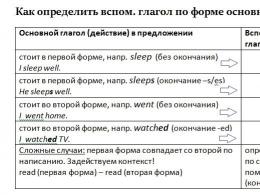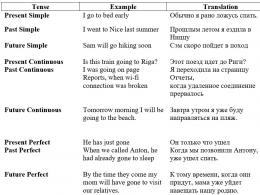Роман джейн эйр на английском языке. «Jane Eyre» Charlotte Bronte (Джен Эйр) на английском и русском языке. Другие книги схожей тематики
The Project Gutenberg eBook, Jane Eyre, by Charlotte Bronte, Illustrated
by F. H. Townsend
This eBook is for the use of anyone anywhere at no cost and with
almost no restrictions whatsoever. You may copy it, give it away or
re-use it under the terms of the Project Gutenberg License included
with this eBook or online at www.gutenberg.org
Title: Jane Eyre
an Autobiography
Release Date: April 29, 2007
Language: English
Character set encoding: ISO-646-US (US-ASCII)
***START OF THE PROJECT GUTENBERG EBOOK JANE EYRE***
Jane Eyre, by Charlotte Bronte
Transcribed from the 1897 Service & Paton edition by David Price, email [email protected]
JANE EYRE AN AUTOBIOGRAPHY
by
CHARLOTTE BRONTË
ILLUSTRATED BY F. H. TOWNSEND
London
SERVICE & PATON
5 henrietta street
1897
The Illustrations
in this Volume are the copyright of
Service & Paton
, London
TO
W.
M. THACKERAY, Esq.
,
This Work
is respectfully inscribed
by
THE AUTHOR
PREFACE
A preface to the first edition of “Jane Eyre” being unnecessary, I gave none: this second edition demands a few words both of acknowledgment and miscellaneous remark.
My thanks are due in three quarters.
To the Public, for the indulgent ear it has inclined to a plain tale with few pretensions.
To the Press, for the fair field its honest suffrage has opened to an obscure aspirant.
To my Publishers, for the aid their tact, their energy, their practical sense and frank liberality have afforded an unknown and unrecommended Author.
The Press and the Public are but vague personifications for me, and I must thank them in vague terms; but my Publishers are definite: so are certain generous critics who have encouraged me as only large-hearted and high-minded men know how to encourage a struggling stranger; to them, i.e. , to my Publishers and the select Reviewers, I say cordially, Gentlemen, I thank you from my heart.
Having thus acknowledged what I owe those who have aided and approved me, I turn to another class; a small one, so far as I know, but not, therefore, to be overlooked. I mean the timorous or carping few who doubt the tendency of such books as “Jane Eyre:” in whose eyes whatever is unusual is wrong; whose ears detect in each protest against bigotry-that parent of crime-an insult to piety, that regent of God on earth. I would suggest to such doubters certain obvious distinctions; I would remind them of certain simple truths.
Conventionality is not morality. Self-righteousness is not religion. To attack the first is not to assail the last. To pluck the mask from the face of the Pharisee, is not to lift an impious hand to the Crown of Thorns.
These things and deeds are diametrically opposed: they are as distinct as is vice from virtue. Men too often confound them:
The Project Gutenberg eBook, Jane Eyre, by Charlotte Bronte, Illustrated
by F. H. Townsend
This eBook is for the use of anyone anywhere at no cost and with
almost no restrictions whatsoever. You may copy it, give it away or
re-use it under the terms of the Project Gutenberg License included
with this eBook or online at www.gutenberg.org
Title: Jane Eyre
an Autobiography
Release Date: April 29, 2007
Language: English
Character set encoding: ISO-646-US (US-ASCII)
***START OF THE PROJECT GUTENBERG EBOOK JANE EYRE***
Jane Eyre, by Charlotte Bronte
Transcribed from the 1897 Service & Paton edition by David Price, email [email protected]
JANE EYRE AN AUTOBIOGRAPHY
by
CHARLOTTE BRONTË
ILLUSTRATED BY F. H. TOWNSEND
London
SERVICE & PATON
5 henrietta street
1897
The Illustrations
in this Volume are the copyright of
Service & Paton
, London
TO
W.
M. THACKERAY, Esq.
,
This Work
is respectfully inscribed
by
THE AUTHOR
PREFACE
A preface to the first edition of “Jane Eyre” being unnecessary, I gave none: this second edition demands a few words both of acknowledgment and miscellaneous remark.
My thanks are due in three quarters.
To the Public, for the indulgent ear it has inclined to a plain tale with few pretensions.
To the Press, for the fair field its honest suffrage has opened to an obscure aspirant.
To my Publishers, for the aid their tact, their energy, their practical sense and frank liberality have afforded an unknown and unrecommended Author.
The Press and the Public are but vague personifications for me, and I must thank them in vague terms; but my Publishers are definite: so are certain generous critics who have encouraged me as only large-hearted and high-minded men know how to encourage a struggling stranger; to them, i.e. , to my Publishers and the select Reviewers, I say cordially, Gentlemen, I thank you from my heart.
Having thus acknowledged what I owe those who have aided and approved me, I turn to another class; a small one, so far as I know, but not, therefore, to be overlooked. I mean the timorous or carping few who doubt the tendency of such books as “Jane Eyre:” in whose eyes whatever is unusual is wrong; whose ears detect in each protest against bigotry-that parent of crime-an insult to piety, that regent of God on earth. I would suggest to such doubters certain obvious distinctions; I would remind them of certain simple truths.
Conventionality is not morality. Self-righteousness is not religion. To attack the first is not to assail the last. To pluck the mask from the face of the Pharisee, is not to lift an impious hand to the Crown of Thorns.
These things and deeds are diametrically opposed: they are as distinct as is vice from virtue. Men too often confound them:
Адаптация текста О. Н. Прокофьевой
Составление комментария и словаря Д. Л. Абрагина
© Прокофьева О. Н., адаптация текста
© Абрагин Д. Л., составление комментария и словаря
© OOO «Издательство АСТ», 2016
Предисловие
«Джейн Эйр» с момента выхода в свет (1847) – один из самых известных и читаемых романов на английском языке. Его автору, Шарлотте Бронте, суждено было стать чрезвычайно популярной писательницей. Однако свой роман ей пришлось выпустить под мужским псевдонимом Каррер Белл, так как женщин-литераторов редко принимали всерьез, несмотря на успех таких известных писательниц более раннего времени, как, например, Джейн Остин. Подписавшись мужским именем, Шарлотта Бронте рассчитывала обеспечить своему произведению более доброжелательный прием у читателей.
Когда роман «Джейн Эйр» вышел из печати, Шарлотте был 31 год, но в действительности писала она всю жизнь. Шарлотта, ее брат Бренуэлл и сестры Эмили и Анна в детстве забавлялись тем, что много фантазировали и записывали истории созданных воображением миров в крошечные книжки, некоторые из которых сохранились до наших дней. Так, Шарлотта и Бренуэлл придумали африканское королевство Ангрию, а Эмили и Анна создали свое королевство, Гондал. Когда девочки Бронте выросли, перед ними встал вопрос, чем же заняться – писательством или учительством (выбор был небольшой). Шарлотта, Эмили и Анна стали писательницами.
Хотя Бронте были очень дружными, на их долю выпала тяжелая жизнь. Они были детьми местного викария и проживали в Хауорте, городке на вересковых пустошах Йоркшира (на севере Англии). Семья приехала сюда в 1820 г., но в 1821 г., когда Шарлотте было всего пять лет, ее мать умерла от рака. Тетя Элизабет Бренуэлл приехала к ним, чтобы ухаживать за детьми.
Затем последовали новые несчастья. В 1824 г. четыре старшие дочери: Элизабет, Мария, Шарлотта и Эмили были отправлены в Коуэн-Бридж, закрытую школу-приют для дочерей духовенства. А на следующий год, когда в школе разразилась эпидемия туберкулеза, Элизабет и Мария заболели. Их отправили домой, но обе девочки умерли. Шарлотта и Эмили также вернулись домой, и с тех пор Шарлотта стала старшей дочерью в семье.
Патрик Бронте, отец Шарлотты, происходил из бедной ирландской семьи, но ум и трудолюбие помогли ему получить образование в Кембриджском университете. Он свято верил в благо учения как для мальчиков, так и для девочек. Его дом был полон книг, среди которых находились произведения, написанные им самим. Всем своим детям он привил любовь к чтению.
Однако именно это пристрастие к чтению затрудняло детям Бронте общение с местными детьми, чьи родители в большинстве своем были простыми фермерами и рабочими. Шарлотта нередко чувствовала, что окружающие люди не в состоянии ее понять, не обладая столь же развитым умом. Это ощущение присутствует и на страницах романа «Джейн Эйр».
Как и в других романах писательницы, в «Джейн Эйр» много деталей и ситуаций, взятых из ее собственной жизни. Ловуд, суровая и немилосердная школа-приют, в которой учится Джейн, имеет много общего и с Коуэн-Бриджем, где некоторое время жила сама Шарлотта, а образ Элен Бернс, подруги Джейн, возможно, основан на воспоминаниях о старших сестрах. В 19 лет Шарлотта стала учительницей в школе Роухед, а затем нашла себе место гувернантки. И это событие также отражено в романе. Чтобы найти себе мужа, Шарлотта, как и ее героиня, Джейн, не могла рассчитывать на свою внешность, полагая, что она слишком маленькая, худая и непривлекательная. Когда же наконец к ней пришла любовь, страстная и безрассудная, предметом ее стал женатый мужчина, и чувства ее оставались безответными.
Вместе с сестрами Эмили и Анной Шарлотта намеревалась открыть собственную школу в Хауорте. Но сначала Шарлотта и Эмили отправились в Брюссель, чтобы, преподавая там английский, усовершенствовать свои знания иностранных языков. Именно там Шарлотта полюбила женатого профессора, которого звали господин Эже. После смерти тети Эмили вернулась домой, чтобы заботиться об отце, а Шарлотта провела в Брюсселе целых два года. Одержимая страстью к господину Эже, она пронесла свою любовь через всю жизнь, хотя и не находила у него ответного чувства. Большинство героинь писательницы – одинокие и застенчивые женщины, которые влюбляются в мужчин старшего возраста. Хотя в своих книгах она, конечно, была вольна давать любые повороты любовным историям.
Сестрам Бронте не удалось добиться успеха в создании школы, и тогда они полностью посвятили себя писательству. Все три сестры, уже давно сочинявшие стихи, выпустили в 1846 г. книгу под псевдонимами Керрер, Эллис и Эктон Белл. Она не пользовалась успехом у читателей, но сестры не сдавались. В следующем году были приняты к публикации роман Эллиса Белла (Эмили Бронте) «Грозовой Перевал» и роман Эктона Белла (Анна Бронте) «Агнес Грей». Несколько издателей отвергли первый роман Шарлотты «Учитель», но второй ее роман, «Джейн Эйр», был сразу же принят к печати. К концу 1847 г. все три романа были напечатаны, и братья Белл стали сенсацией национального масштаба.
С самого начала читающая публика недоумевала, не зная, кто же скрывается под псевдонимами Белл. Некоторые все же осмеливались предположить, что на самом деле это, возможно, женщины. Вскоре сестрам пришлось открыться. Роман «Джейн Эйр» значительно превосходил по популярности два других романа, и когда Анна Бронте написала роман «Арендатор Уайльдфелл-Холла», издатель предложил напечатать его под именем Керрера, а не Эктона Белла. Шарлотта и Анна поехали в Лондон на переговоры к издателям и только тут впервые назвали свои настоящие имена.
Шарлотта решила сделать писательство своим основным занятием, но вскоре на нее снова обрушились несчастья. Летом 1848 г. ее брат, Бренуэлл Бронте, который страдал пристрастием к алкоголю и опиуму, тяжело заболел, а в сентябре того же года умер. К середине осени стало ясно, что Эмили тоже больна, возможно, туберкулезом. Однако Эмили, женщина с сильной волей, продолжала вести хозяйство и отказывалась обратиться к врачу. В декабре 1848 г. она тоже умерла, не дожив до своего 30-летия.
К ужасу Шарлотты, у Анны, единственной оставшейся в живых сестры, тоже обнаружили туберкулез. Испробовав все способы лечения, в мае 1849 г. Шарлотта с сестрой отправились в приморский город Скарборо, где климат был более благоприятным для преодоления недуга. Здесь Анна и умерла, оставив еще одну рану в сердце Шарлотты.
В течение нескольких последующих лет Шарлотта сосредоточилась на писательской работе и опубликовала еще два романа: «Шерли» (1849) и «Виллетт» (1853). Последний роман некоторые критики считают ее лучшим произведением. Несколько раз она приезжала в Лондон, где познакомилась с другими известными писателями, такими, как Элизабет Гаскелл и Уильям Теккерей. В Лондоне был написан ее портрет. Известность писательницы росла.
В 1852 г. преподобный Артур Белл Николс, скромный священник, работавший в приходе отца Шарлотты в Хауорте, сделал ей предложение. Сначала она отказала ему, но в 1854 г. все же вышла за него замуж.
Хотя она не испытывала к мужу настоящей любви, брак принес ей некоторое умиротворение и покой. Но ее продолжала угнетать память о столь ранней смерти сестер и брата. На следующий год, когда Шарлотта заболела пневмонией, она не нашла в себе сил бороться за жизнь, хотя болезнь не была неизлечимой. В марте 1855 г., ожидая своего первого ребенка, она умерла в возрасте 38 лет.
Уже после смерти автора свет увидел первый роман Шарлотты «Учитель». Писательница-романистка Элизабет Гаскелл написала биографию Ш. Бронте. Именно благодаря этому жизнь сестер Бронте, как и их романы, оказались столь широко известны публике. С тех пор творчество сестер Бронте и их судьба неизменно завоевывают сердца читателей.
Chapter 1
It was impossible to take a walk that day. Since dinner the cold winter wind had brought with it clouds so sombre, and a rain so penetrating, that further out-door exercise was out of the question. Instead, we had to amuse ourselves indoors. I was glad of it: I never liked long walks, especially on chilly afternoons. My cousins, Eliza, John and Georgiana Reed were sitting round their mama in the drawing-room by the fire-side, but I was not allowed to join the group.
“You, Jane, are excluded from our company until I hear from Bessie that you can behave like a proper, sweet little girl,” announced Mrs. Reed.
“What does Bessie say I have done?” I asked.
“Jane, I don’t like questioners; don’t answer me back. Be seated somewhere; and until you can speak pleasantly, remain silent.”
I went into another room, with a bookcase in it. I took one of the books, Bewick’s History of British Birds, and climbed into the window seat. I drew the curtain, gathered up my feet, and sat cross-legged, like a Turk. Then I immersed myself into another world. I was now discovering the shores of Lapland, Siberia, Spitzbergen, Nova Zembla, Iceland, Greenland, with ‘the vast sweep of the Arctic Zone, and that reservoir of frost and snow. Of these death white realms I formed an idea of my own: shadowy, like all the half-comprehended notions that float dim through children’s brains, but strangely impressive.
The book contained pictures, and each picture told a story. These stories were as interesting as the tales Bessie sometimes narrated on winter evenings when she was in good humour and fed our attention with passages of love and adventure from old fairy tales and other ballads.
With Bewick on my knee, I was then happy: happy at least in my way. I feared nothing but interruption, and that came too soon. The breakfast-room door opened.
“Boh!” cried the voice of John Reed. Then he paused as he thought the room was empty. “Where is she? Lizzy! Georgy! Tell Mama! Jane’s run out into the rain!”
“She’s in the window seat,” Eliza said at once.
I came out immediately before John could drag me out.
“What do you want?” I asked.
John Reed was a fourteen-year-old schoolboy, four years older than I. He was large and stout for his age, and he bullied me continually. I hated and feared him, I could do nothing against his menaces. The servants did not like to offend their young master, and Mrs. Reed was blind and deaf on the subject.
All at once, without speaking, John struck suddenly and strongly
“That is for your rude answer to mama, for hiding behind curtains and for the look you had in your eyes, you rat,” he said.
“What were you doing behind that curtain?”
“I was reading.”
“Show me the book.”
I gave him the book.
“You have no right to take our books. You have no money, your father left you none, you should beg, and not live with us. Now, I’ll teach you a lesson. Go and stand by the door.”
I did so, then waited, flinching. He hurled the heavy book at me. It hit me and I fell, striking my head against the door and cutting it. The cut bled, the pain was sharp: suddenly my terror was gone, and I was full of anger.
“Wicked and cruel boy! You are like a murderer!”
“Did she say that to me? Did you hear her, Eliza and Georgiana? Won’t I tell mama? but first -“
He grasped my hair and my shoulder. I don’t very well know what I did with my hands, but he called me ‘Rat! Rat!’, Eliza, and Georgiana ran for Mrs. Reed.
We were parted, and Mrs. Reed was standing over me.
“Dear, dear,” said Abbott, shaking her head. “What a fury, to fly at master John!”
“Take her away to the red-room,” said Mrs. Reed, “and lock her in there.”
The red-room was the biggest bedroom in Gateshead Hall, with a red carpet, red damask drapery, red velvet curtains, and a dark mahogany bed in it. Nobody slept there. Nobody wanted to. It was here, nine years before, in that very bed that Mr. Reed had died. Ever since I had often heard the servants whispering that it was haunted.
I resisted all the way. Bessie and Abbott had to force me through the door. I only stopped struggling when they threatened to tie me to a chair.
“What shocking conduct, Miss Eyre, to strike a young gentleman! Your young master.”
“Master! How is he my master? Am I a servant?”
“No; you are less than a servant, for you do nothing for your keep,” said Miss Abbot.
“Miss Eyre, you should be grateful to Mrs. Reed for keeping you,” said Bessie, in a kinder voice. “If you don’t behave, she might send you away, and then where would you be?”
“You’d better say your prayers, Miss, and ask for forgiveness,” said Abbott.
They left and locked the door behind them.
Left alone, holding furiously onto the chair I had been pushed into, I turned the afternoon’s events over and over in my mind. Why did everyone adore selfish, rude John, Georgiana and Eliza, and hate me, even though I tried to be good? Why could I never please? Was it because they were pretty, with their golden curls and silk dresses, and I was poor and plain? “Unjust! – unjust!” said a voice in my head.
The room was silent as it was far from the nursery and kitchen. It was getting dark as the daylight faded and I had no candle. It was cold too as there was no fire. I thought about Mr. Reed. He had been my uncle – my mother’s brother. When my parents had died, I was a baby, and my uncle Reed had brought me to live at Gateshead Hall. Bessie had told me that Mrs. Reed only continued to look after me because, just before his death, Mr. Reed had made her promise that she would.
He had always been kind to me. Perhaps now his spirit was watching, and was angry about the way they treated me. Perhaps – I gripped the chair more tightly, and felt frightened – perhaps his ghost really lived in this room.
The thought of seeing a ghost, even kind Mr. Reed’s ghost, filled me with terror. I was not quite sure whether Abbott and Bessie had locked the door; I got up and went to see. Alas! yes. I stared into the darkness in panic, convinced a phantom was about to appear.
At this moment a light gleamed on the wall and began to glide slowly across the ceiling towards me.
Looking back, I know it was probably nothing more than a footman carrying a lantern across the lawn. But, in my terrified state of mind, I believed it was the ghost. My head grew hot, something seemed near me. I rushed to the door and shook the lock in desperate effort screaming.
I heard footsteps, the key turned, Bessie and Abbot entered.
“Take me out! Let me go into the nursery!” I cried.
“What for? Are you hurt? Have you seen something?” demanded Bessie.
“I saw a light, and I thought it was a ghost…”
“What is all this?” It was Mrs. Reed. “Bessie, I told you to leave Jane alone.”
“Miss Jane screamed so loudly, ma’am…”
“You cannot get out by these means, child,” Mrs. Reed said. “It is my duty to show you that tricks will not work. You will now stay here an hour longer.”
“O aunt! have pity! Forgive me!”
But I was only an actress in her eyes. Bessie and Abbot left first, Mrs. Reed pushed me back into the room and locked me in.
Left alone once more, I fell unconscious, as that was the last thing I remembered.
Chapter 2
When I woke up, I was somewhere warm and soft. There was a red glow and muffled voices around me. Someone lifted me, and then I rested my head against a pillow or an arm, and felt easy.
When I opened my eyes, I saw that I was in my own bed. The glow came from the fire. It was night. Bessie stood beside me, looking anxious, and a gentleman sat in a chair near my pillow. I knew him. It was Mr. Lloyd, an apothecary. Mrs. Reed called him sometimes when the servants were ill.
“Who am I, Jane?” he asked.
“Mr. Lloyd,” I said, offering him at the same time my hand. He took it and smiled.
“I think she’ll be alright. I’ll come back tomorrow.”
He departed, to my grief. I felt so sheltered when he sat in the chair, and then all the room darkened.
“Would you like to sleep, Miss Eyre?” asked Bessie, rather softly.
“I’ll try.”
“Would you like something to eat or drink?”
“I would love to go to school.”
“Well then,” he said. “I will speak to Mrs. Reed.”
Chapter 3
After that day a change seemed near, I desired and waited it in silence. Mrs. Reed dropped no hint about sending me to school but I felt she would no longer endure me under the same roof. I ate my meals alone, and Mrs. Reed told John, Eliza and Georgiana not to speak to me. I spent more time with the servants than with the Reeds. Sometimes Bessie let me dust and tidy the rooms to keep me busy.
November, December, and half of January passed away. During all Christmas and New Year parties I waited in my room, listening to the sound of the piano, the clink of glasses and the hum of conversation below. Once or twice Bessie brought me a cake from the feast.
It was the fifteenth of January, about nine o’clock in the morning. Bessie came running into the nursery. “Miss Jane! What are you doing there?” she said. “Have you washed your hands and face this morning?” She hurried me up to the washstand, scrubbed my face and quickly brushed my hair. I was wanted downstairs.
I slowly descended and stopped in front of the breakfast-room door trembling. I feared to return to the nursery, and feared to go forward. Ten minutes I stood in hesitation till I finally decided: I MUST enter.
Mrs. Reed was in her usual seat be the fireside, she made a signal to me to approach and introduced me to a tall grey-eyed gentleman with the words: “This is the little girl I wrote to you about.”
“She is so small. What is her age?” he said in a bass voice.
“Ten years.”
“So much? What is your name, little girl?”
“Jane Eyre, sir.”
“Well, Jane Eyre, are you a good child?”
It was impossible to answer. I thought I was good, but I knew no one else in the house would say so. I was silent. Mrs. Reed answered for me by shaking her head and adding: “The less said about that, the better.’’
“Sorry indeed to hear! She and I must talk. Come here.”
I came up to him. He placed me straight before him. What a face he had! What a great nose! And what a mouth!
“No sight so sad as that of a naughty child. Do you know where wicked people go, Jane, after they die?”
“They go to hell,” was my ready answer.
“Is that what you want to happen to you?”
“No, sir,” I said.
“What must you do to avoid it?”
I was at a loss. I knew I couldn’t try any harder to be good. “I must take care not to die, sir.”
“Do you say your prayers night and morning?”
“Do you read your Bible?” continued my interrogator.
“Sometimes.”
“Are you fond of it?”
“I like Revelations, and the book of Daniel.”
“And the Psalms?”
“I don’t like them.”
“Oh, shocking! I know a little boy, younger than you, who knows six Psalms by heart. When asked what he would prefer, a nut or a Psalm to learn, he says, ‘Oh, the verse of a Psalm, please. Angels sing Psalms. I wish to be like a little angel.’ He then gets two nuts as a reward for his goodness.”
“Psalms are not interesting.”
“You must pray to God to change your wicked heart and give you a new and clean one.”
I wanted to ask him how when Mrs. Reed broke the silence.
“Mr. Brocklehurst,” she said. “If you admit her into Lowood schoold, I want the superintendent and teachers keep a strict eye on her. Deceit is, indeed, a sad fault in a child.” Uttered before a stranger, the accusation cut me to the heart.
“Deceit is, indeed, a sad fault in a child. She will be watched, Mrs. Reed. I will speak to Miss Temple and the teachers,” said Mr. Brocklehurst.
“I wish her to be made useful and humble. She will, with your permission, spend all vacations at Lowood.”
“I approve of your decisions, madam.”
“I will send her, then, as soon as possible, Mr. Brocklehurst.”
“I will send Miss Temple notice about a new girl, so that there will be no difficulty about receiving her. Good-bye.”
“Good-bye, Mr. Brocklehurst.”
Mrs. Reed and I were left alone: some minutes passed in silence; she was sewing, I was watching her with rage in my eyes. Mrs. Reed looked up from her work
“Return to the nursery,” she ordered with irritation. But first I wanted to talk with her.
“I am not deceitful,” I said. “If I were, I would lie and say I love you, and I declare I do not love you. I dislike you, and your son, and the girls. They tell lies, not me.”
“Have you anything more to add?” she asked coldly, as if she were speaking to an adult, not a child. Her tone made me even more furious. Shaking from head to foot, I continued: “I am glad you are no relation of mine. I will never call you aunt again as long as I live. People think you a good woman, but you are bad, hard-hearted. YOU are deceitful!”
“‘Jane, you are under a mistake: what is the matter with you? I assure you, I desire to be your friend.”
“Not you. You told Mr. Brocklehurst I had a bad and deceitful character; and I’ll let everybody at Lowood know what you are, and what you have done. Send me to school soon, Mrs. Reed, for I hate to live here.”
“I will indeed send her to school soon,” murmured Mrs. Reed and left the room. I won.
“All at once I heard a clear voice call, ‘Miss Jane! where are you? Come to lunch!”
It was Bessie, I knew well enough, but I did not move. She came and her presence seemed cheerful. I put my two arms round her.
“You are going to school, I suppose?” she asked.
“And won’t you be sorry to leave poor Bessie?”
“Not at all, Bessie; indeed, I’m rather sorry.”
She laughed at my words and we embraced.
I had some spare time last week and my mom recommended me to read some of her favourite books. They were mainly of foreign authors and I Liked many of them. But most of all I was impressed with "Jane Eyre" by Charlotte Bronte.
It is a moving love story with the happy ending, set in the Victorian England. The author tells simple and quite traditional story of a poor girl, Jane, having deep and sincere feelings to her married master, Edward Rochester. I think, Jane Eyre is one of the great romantic heroines of world literature. Being a penniless orphan, Jane, due to her personal talents, exceptional inner features and moral convictions, found her true love and happiness.
I admired everything in this book: the plot, the characters, the style and, especially, the author"s emotional honesty. Readers can find many attractions in this novel: tender heroine, self-devotion, painful separation, dark mystery, catastrophe, happy ending. Without doubt, this book is highly-prized by readers, literary critics, and researchers.
I have learned that there are twenty-two films, nine TV versions of the novel, several ballets, an opera, and a couple of musicals based on the novel "Jane Eyre". Some people would say that this story is a little bit naive for a modern reader, who is spoiled by pragmatism of our epoch. Sometimes I was irritated by the passiveness of Jane Eyre. But such involvement the reader into the plot of the novel is the mark of a true writer"s talent.
Джейн Эйр
У меня было немного свободного времени на прошлой неделе, и моя мама порекомендовала мне прочитать некоторые из своих любимых книг. Они были в основном зарубежных авторов, и мне понравилось много из них. Но больше всего я была впечатлена "Джейн Эйр" Шарлотты Бронте.
Это трогательная история любви со счастливым концом, происходящая в викторианской Англии. Автор рассказывает простой и довольно традиционный рассказ о бедной девушке, Джейн, имеющей глубокие и искренние чувства к Эдварду Рочестеру. Я думаю, что, Джейн Эйр является одной из великих романтических героинь мировой литературы. Будучи сиротой без гроша, Джейн, в связи с ее личным талантам, исключительными внутренними возможностями и моральными убеждениями, нашла настоящую любовь и счастье.
Я восхищалась всем в этой книге: сюжетом, персонажами, стилем и, особенно, эмоциональной честностью автора. Читатели могут найти много привлекательных особенностей в этом романе: нежная героиня, самоотдача, болезненные расставания, темные тайны, катастрофы, счастливый конец. Без сомнения, эта книга высоко ценится читателями, литературными критиками и исследователи
Я узнала, что есть двадцать два фильма, девять ТВ версий романа, несколько балетов, оперы, и пару мюзиклов по мотивам романа "Джейн Эйр". Некоторые люди говорят, что эта история немного наивна для современного читателя, который испорчен прагматизмом нашей эпохи. Иногда меня раздражала пассивность Джейн Эйр. Но такая вовлеченность читателя в сюжет романа - знак истинного таланта писателя.
Обзор книги Джен Эйр
История страданий и лишений бедной английской сиротки Джен Эйр на протяжении почти трех веков вызывает живой интерес и сострадание читателей всего мира. Автор произведения — Шарлотта Бронте, замечательная английская писательница. Она выбрала легкий и доступный стиль повествования для того, чтобы рассказать непростую историю жизни Джен. Описанные в романе события происходят в Англии в Викторианскую эпоху и отражают реалии жизни самой писательницы.
Роман был опубликован в 1847 году и буквально сразу завоевал признание читателей. Джен –сирота, без гроша за душой, живет на иждивении тетки, которая ненавидит бедную девочку и в конце концов отправляет ее в приют. Сила духа, мужество и острый ум помогают Джен выдержать все тяготы и невзгоды, выпавшие на долю несчастной сироты. Девочка пережила невероятные трудности и наконец была вознаграждена судьбой. Она получает место гувернантки в семье богатого помещика мистера Рочестера. Джен очень довольна своим новым статусом, у нее есть собственная комната. Девушке очень нравится тихая деревенская жизнь, красивые сады, большой особняк, библиотеки которого заполнены книгами. Кажется, ничто не может нарушить спокойствие ее новой жизни, но именно тут и начинаются настоящие испытания для Джен и самые захватывающие и таинственные события.
Язвительный темперамент хозяина дома поначалу отталкивает Джен, но неприязнь постепенно перерастает в нечто совершенно иное. Между молодыми людьми возникает сильное и глубокое чувство, которому, казалось бы, ничто не может помешать. Но и тут девушку ждет неприятный сюрприз – страшная тайна, которую хранит возлюбленный Джен открывается в момент наивысшего для нее счастья и переворачивает всю жизнь девушки с ног на голову. Судьба ставит девушку перед самым тяжелым выбором – быть вместе с любимым несмотря ни на что или уйти и навсегда забыть о своей любви. Что выберет Джен?
Роман «Джен Эйр» считается одним из самых романтических романов всех времен. С героями, которые столь же незабываемы, как и сама их история, произведение стало одним из самых значительных в английской литературе.
Захватывающий сюжет романа и несложный язык позволяют легко прочесть роман на языке оригинала. Для тех, кто стремится совершенствовать свой английский, этот роман — идеальный выбор. На нашем сайте мы рады предоставить вам эту возможность и публикуем роман «Джен Эйр» на двух языках – языке оригинала и перевод на русский язык.






